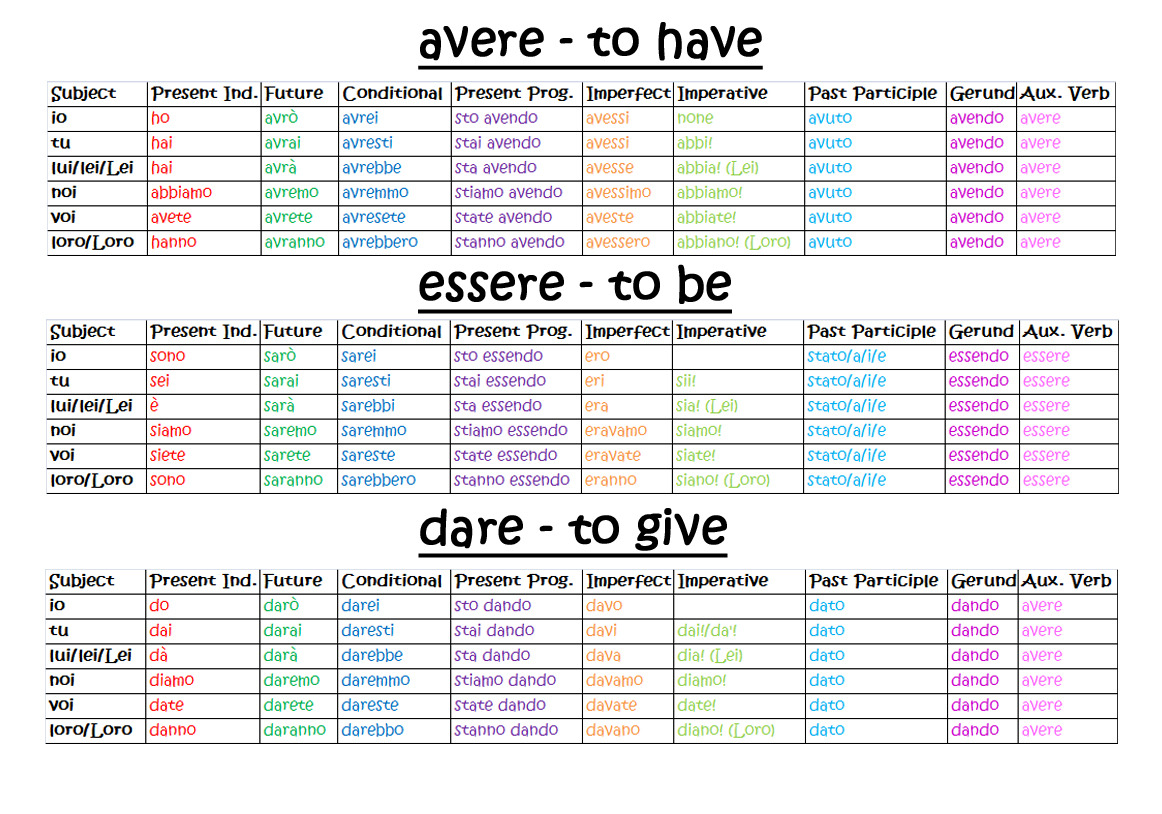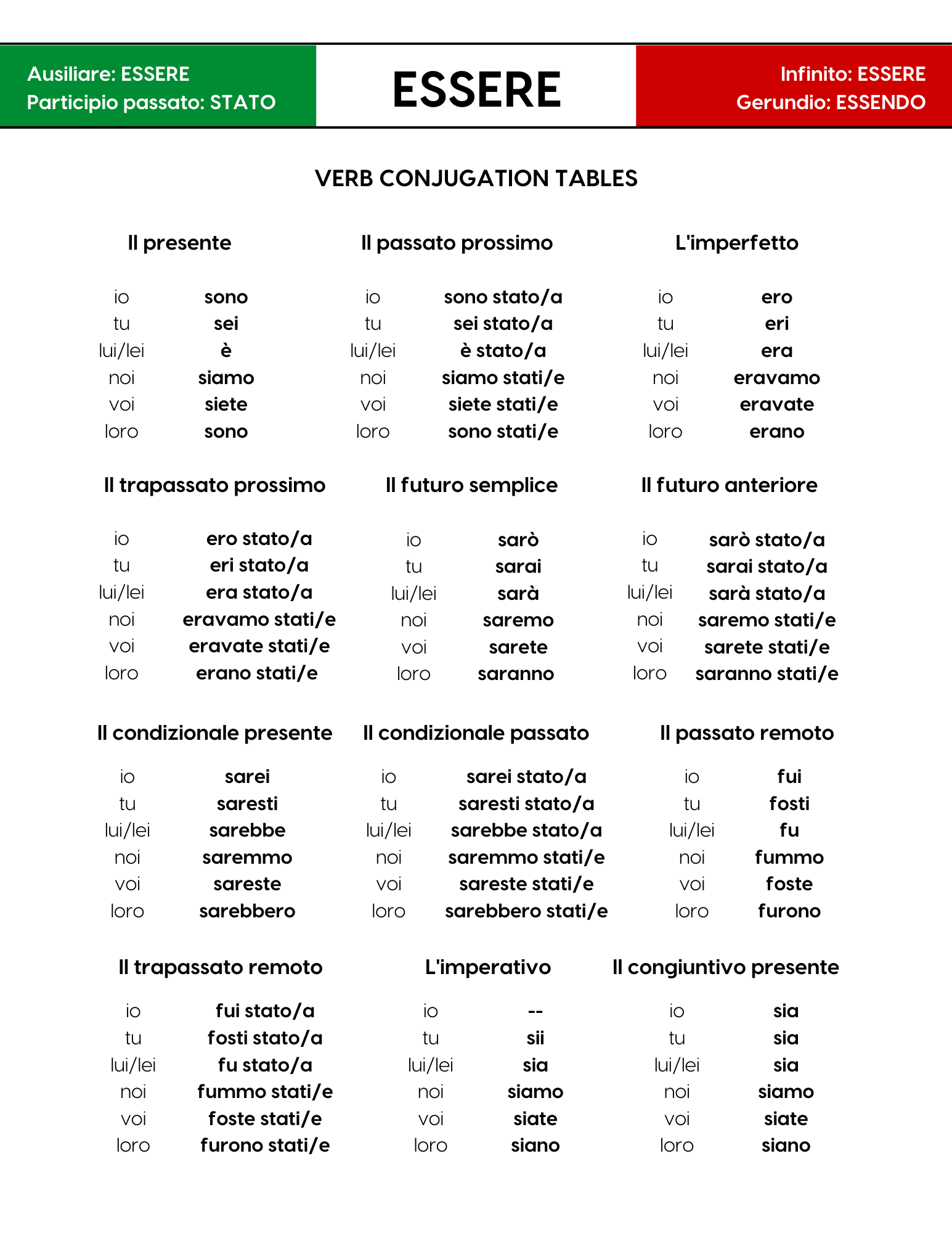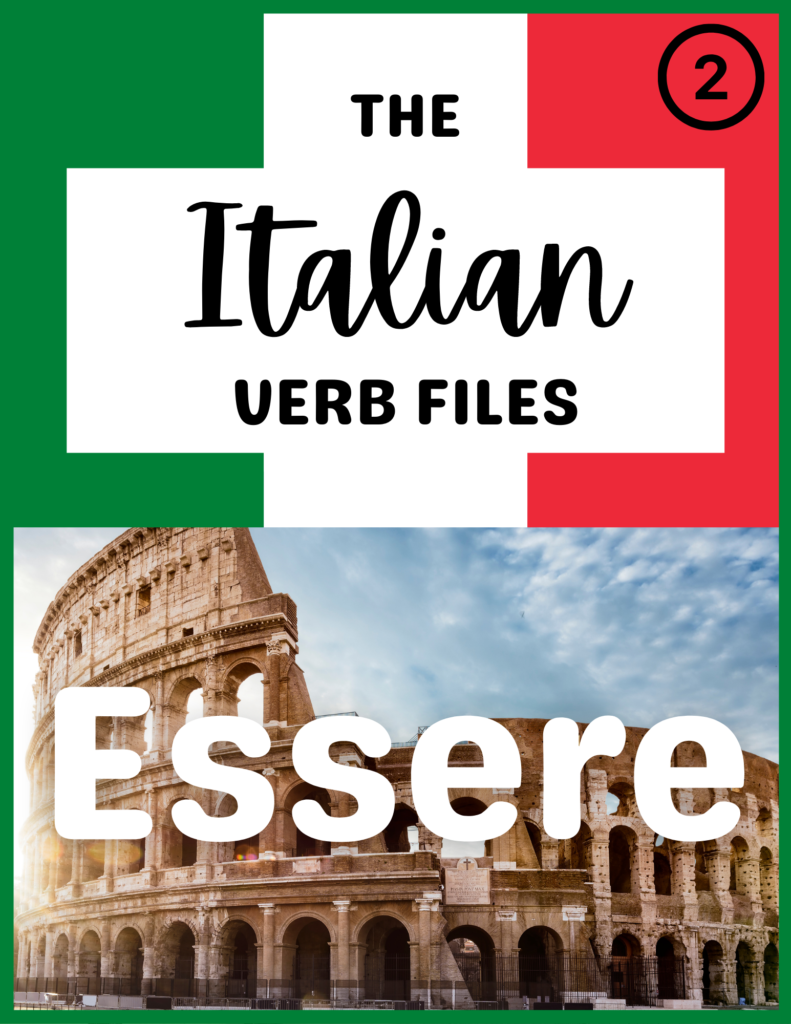
Essere is a totally versatile verb, you can literally find tens of
The Italian verb "essere," meaning "to be," is one of the most fundamental and frequently used verbs in the Italian language. Mastering the conjugation of "essere" is essential for expressing existence, identity, characteristics, and more. In this comprehensive guide, we will explore the conjugation of "essere" in detail, accompanied by example sentences to illustrate its usage.

Italian grammar essere presente indicativo to be Learning italian
PART 1. Differences in the Use of 'Essere' and 'Avere' in Everyday Sentences 1.1 When you introduce yourself in Italian, you can use the verb essere to say your name, profession, and nationality: Sono Roberto = I am Roberto Sono insegnante di matematica = I am a math teacher Sono svizzero = I'm Swiss

How to Conjugate Italian Verbs in 3 Simple Steps [Italian for Beginners
Essere is the life-affirming verb whose conjugation is a staple in Italian grammar. The most used word in the language, it means to be and to exist, and when accompanied by the preposition di, it means to be from somewhere. Its uses are much like those in English: I am Italian; that is a cat; the sky was blue. It is noon. We are inside.

Italian verb "essere" to be YouTube
Essere is for emotions, personality, physical traits, and identity, while stare deals with feelings, often with adverbs like bene or male. Essere reflects conditions, qualities, and attributes like nationality, while stare signals imminent actions. Let's learn how to use them correctly! Italian grammar lessons (A1) Beginner Stefano Pro study tips

The verb "essere" (to be) in Italian language (present tense) Italian
Essere is an Italian irregular verb meaning to be. Essere appears on the 100 Most Used Italian Verbs Poster as the #1 most used irregular verb. Essere Conjugation: Present Tense *Irregular forms in bold. Essere Passato Prossimo The passato prossimo of Essere is formed by combining the auxiliary verb essere with the past participle stato.

Conjugation of Italian verbs Avere (to have) and Essere (to be)
The Italian verb ESSERE is used in many expressions about telling time. NUMBERS 2 and ABOVE When you are talking about a number that is 2 or above, you use the 3rd person plural (loro) form of the verb. Example: "It is 10 o'clock." = Sono le dieci. Example: "It is 4 o'clock." = Sono le quattro. THE NUMBER 1 and SINGULAR TIME EXPRESSIONS

Learn Italian The Verb Essere (To Be) YouTube
The Italian verb essere is a very irregular verb of the second conjugation that means "to be" and "to exist." It is an intransitive verb (because there is no action to transit, so to speak), and hence does not have a direct object .

Italian verb conjugation for the first three you... sweet milk custard
Together with avere, essere is one of the two most common and important verbs in the Italian language. We use it all the time, so we've prepared this post for you to learn the essere conjugation forms and to start getting familiarized with them. Italian grammar lessons (A0) Total beginner Stefano Start here

The Italian Verb Files Essere The Happy Maple Language Co
Translations. get, colloquial: to be. have, auxiliary used in forming the perfect and the past perfect tenses. stay, to continue to have a particular quality. genuflect, to behave in a servile manner.

Learn Italian Verbs Essere and Avere YouTube
Essere is one of two Italian verbs that can mean "to be."* It's the most common verb in the Italian language, used to describe many aspects of being: 1) Names and professions. Sono Laura. I'm Laura. Quest'uomo è un medico. This man is a doctor. 2) Nationality, origin. Sono tedesco.

The Italian Verb Files Essere The Happy Maple Language Co Italian
The verb "essere" is, together with "avere" ("to have"), one of the two auxiliary verbs in Italian. This means that they're used both independently and as "helpers" of any other verb to form specific tenses.
/GettyImages-690629482-1804aa54492f4ba784940688bc0adb25.jpg)
Italian Verb Conjugations Essere
Conjugation verb essere Infinito essere Gerundio essendo Participio Passato stato Model : essere Auxiliary : essere Other forms: essersi / non essere Advertising Indicativo Presente io sono tu sei lei/lui è noi siamo voi siete loro sono Imperfetto io ero tu eri lei/lui era noi eravamo voi eravate loro erano Passato remoto io fui tu fosti lei/lui fu

The Verb 'Essere' (to be) in Italian Italian words, Italian phrases
Conjugation Italian verb essere Auxiliary verb - essere is intransitive (essere auxiliary) essere feminine Translation essere essere to be Indicativo (Indicative) Presente (Present) io sono tu sei lui è noi siamo voi siete loro sono Passato prossimo (Present perfect) io sono stato tu sei stato lui è stato noi siamo stati voi siete stati

The Italian Verb Files Essere The Happy Maple Language Co
Essere is an auxiliary verb, which means it is used to make other verbal tenses. Essere is also irregular, so you will have to learn all of its forms by heart. But don't worry—once you learn how the compound tenses are made, you will already be halfway through. Let's see how to conjugate essere , and how it is used in common Italian phrases.

LARGE posters Italian verbs "Essere" and "Avere" (To Be, To Have
Essere Conjugation - Presente First thing to know is that Essere follows an irregular conjugation, meaning that you can't apply the rules of regular verbs when conjugating it, but you need to learn it by heart: Sono molto stanca. - I am very tired.

ITALIAN VERBS ESSERE (TO BE) YouTube
The Importance of Essere and Avere Just how important are essere and avere? Well, for starters, they are two of the most common verbs in the Italian language. They are used in a wide variety of situations and serve as a grammatical aid in many situations.